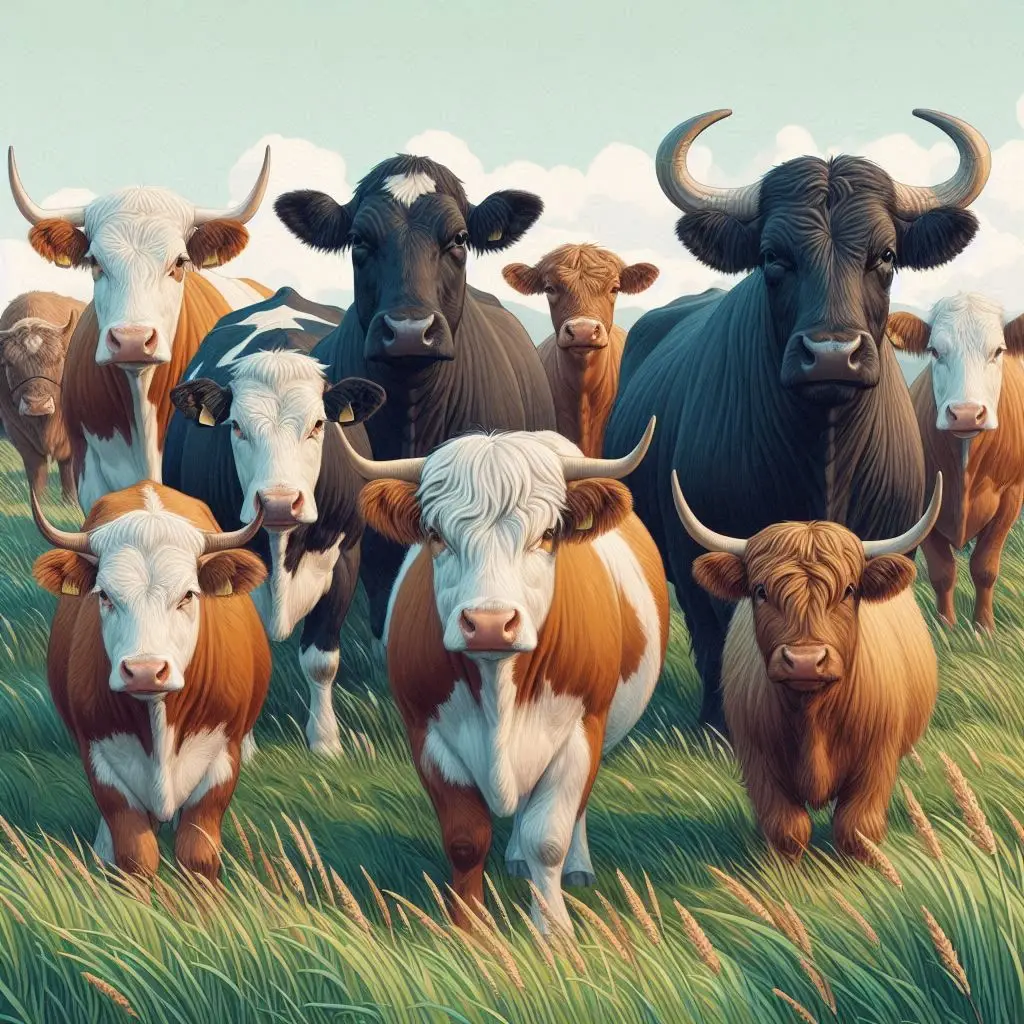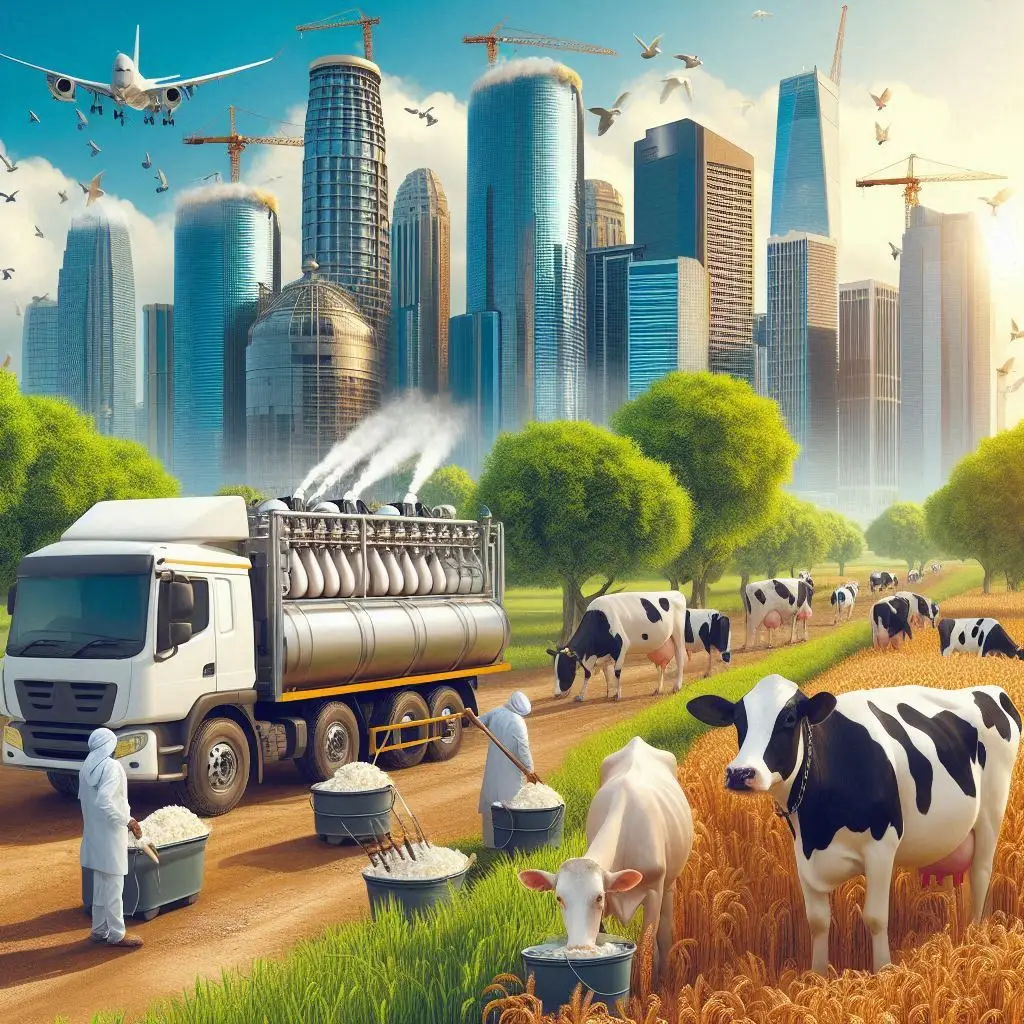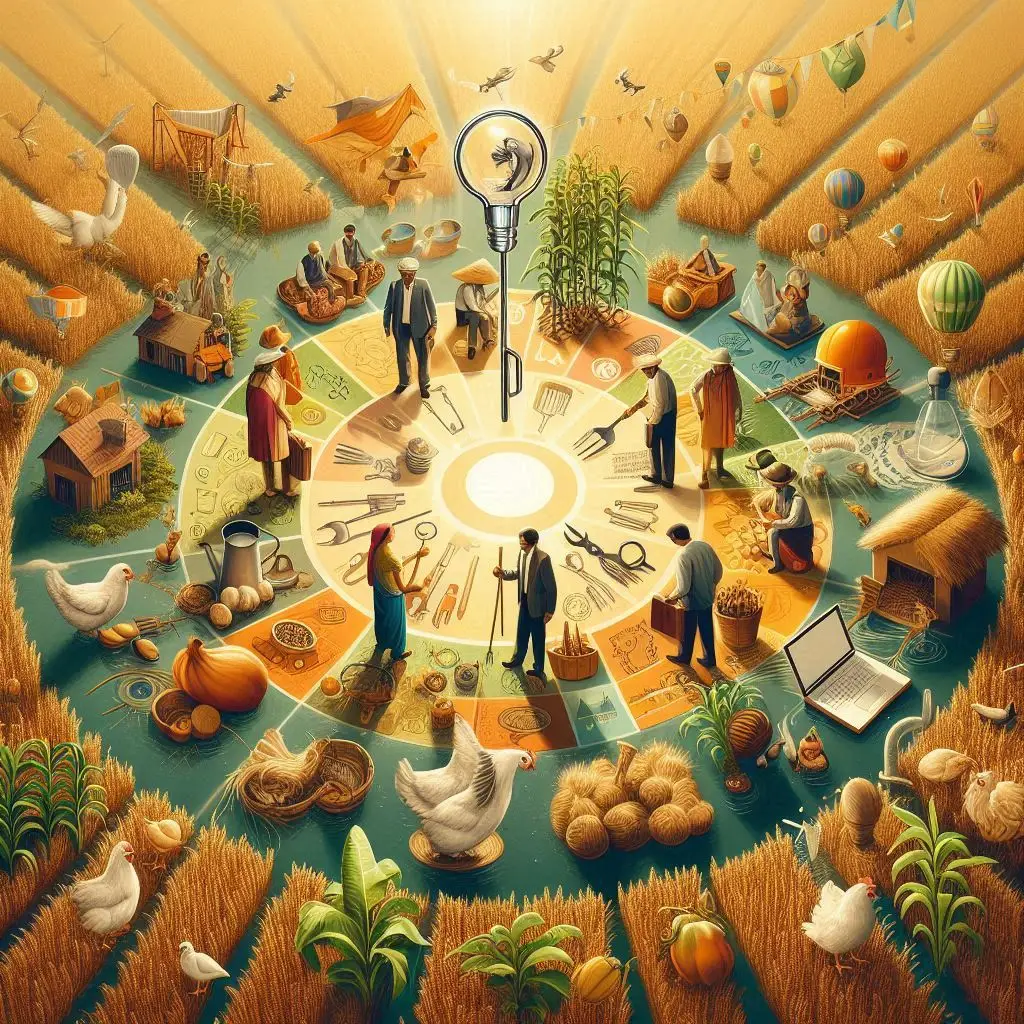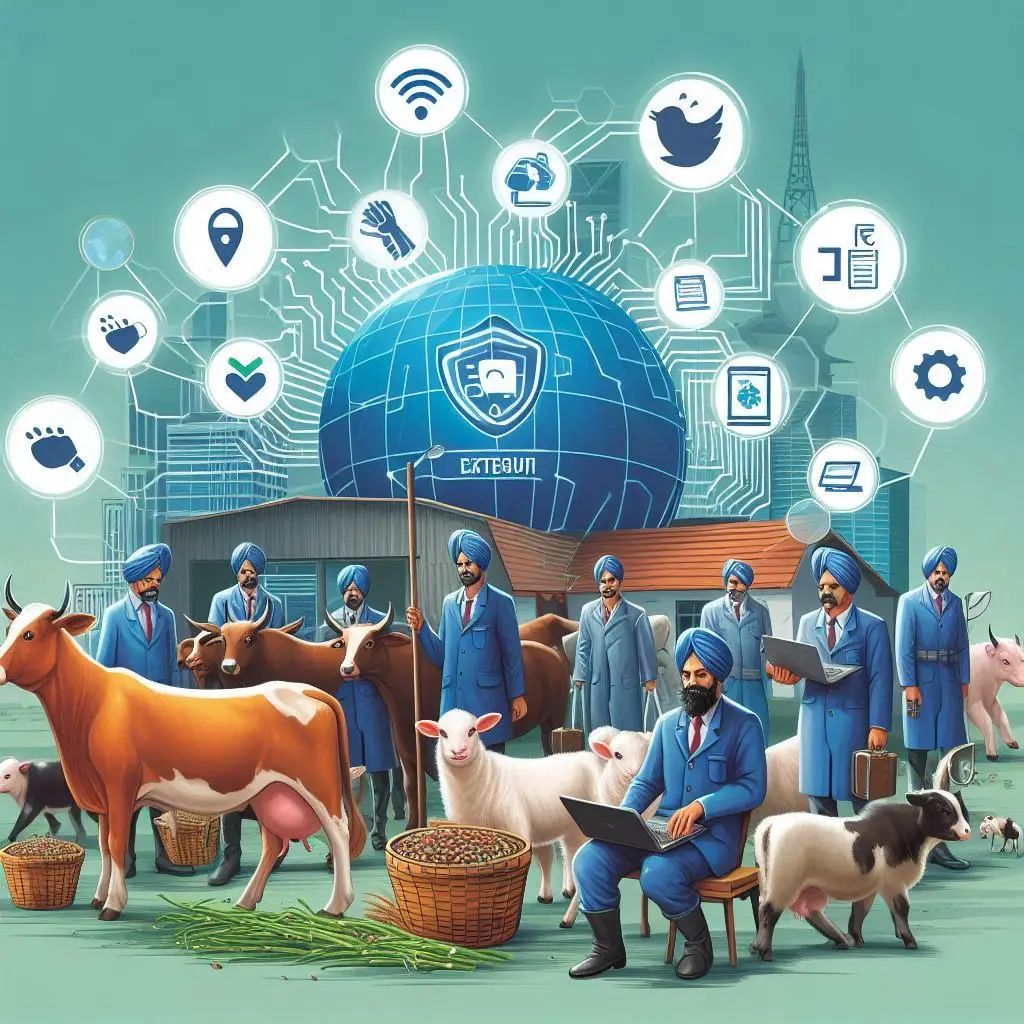Role of Livestock Development Officers in India’s Animal Husbandry Sector

Livestock development plays a crucial role in India’s rural economy and food security. As the country aims to modernize and enhance its animal husbandry practices, Livestock Development Officers (LDOs) serve as key agents of change at the grassroots level. This article explores the multifaceted responsibilities of LDOs and their vital contribution to advancing India’s livestock sector.
The Importance of Livestock in India’s Economy
Before delving into the role of LDOs, it’s important to understand the significance of livestock in India:
- Livestock contributes about 4.11% to India’s GDP and 25.6% to the agricultural GDP[1].
- The sector provides employment to over 8.8% of the population[1].
- India ranks first in global milk production, producing 22% of global milk[1].
- The country has the world’s largest bovine population[1].
Given these statistics, it’s clear that livestock development is crucial for India’s rural development, food security, and overall economic growth.
Key Responsibilities of Livestock Development Officers
Livestock Development Officers play a multifaceted role in advancing animal husbandry practices and supporting farmers. Their core responsibilities include:
1. Providing Technical Guidance to Farmers
LDOs serve as a vital link between scientific research and on-ground implementation. They provide farmers with technical guidance on:
- Optimal animal nutrition and feeding practices
- Animal health management and disease prevention
- Breeding techniques to improve livestock genetics
- Housing and management practices for better productivity
By disseminating scientific knowledge in an accessible manner, LDOs help farmers adopt modern animal husbandry practices.
2. Implementing Government Schemes
LDOs play a crucial role in implementing various state and central government schemes related to livestock development. This involves:
- Creating awareness about available schemes among farmers
- Assisting farmers in applying for relevant programs
- Monitoring the implementation of schemes at the ground level
- Providing feedback to higher authorities on scheme effectiveness
Through these efforts, LDOs ensure that government initiatives reach their intended beneficiaries and achieve their objectives.
3. Conducting Training Programs
Capacity building of farmers is a key responsibility of LDOs. They organize and conduct training programs on various aspects of animal husbandry, including:
- Modern dairy farming techniques
- Poultry management
- Goat and sheep rearing
- Fodder production and conservation
- Value addition to livestock products
These training programs empower farmers with knowledge and skills to improve their livestock management practices.
4. Animal Health Management
LDOs work closely with veterinarians to ensure the health and well-being of livestock. Their responsibilities in this area include:
- Organizing vaccination camps
- Conducting disease surveillance
- Assisting in the implementation of animal health programs
- Educating farmers on disease prevention and biosecurity measures
By focusing on preventive healthcare, LDOs help reduce economic losses due to animal diseases.
5. Promoting Breed Improvement
Genetic improvement of livestock is crucial for enhancing productivity. LDOs contribute to this by:
- Promoting artificial insemination services
- Educating farmers about superior indigenous and crossbred varieties
- Facilitating the distribution of improved breeding stock
- Maintaining records of breeding programs
These efforts help in upgrading the genetic potential of India’s livestock population.
6. Fodder Development
Ensuring adequate availability of quality fodder is essential for livestock productivity. LDOs work on:
- Promoting cultivation of high-yielding fodder varieties
- Demonstrating silage making and other fodder conservation techniques
- Encouraging agroforestry practices for sustainable fodder production
- Assisting in the establishment of community fodder banks
By addressing the critical issue of fodder availability, LDOs contribute to improving animal nutrition and productivity.
7. Data Collection and Reporting
LDOs play a crucial role in collecting and maintaining data on livestock populations, productivity, and health status. This involves:
- Conducting periodic livestock censuses
- Maintaining records of animal breeding and health interventions
- Collecting data on milk production and other livestock products
- Preparing reports for higher authorities
This data collection is vital for policy formulation and program planning at higher levels.
8. Promoting Entrepreneurship in Animal Husbandry
LDOs encourage farmers to view animal husbandry as a profitable enterprise. They assist in:
- Developing business plans for dairy, poultry, and other livestock ventures
- Linking farmers with financial institutions for credit access
- Promoting value addition to livestock products
- Facilitating market linkages for better price realization
By fostering entrepreneurship, LDOs contribute to increasing rural incomes and employment generation.
Challenges Faced by Livestock Development Officers
While LDOs play a crucial role, they often face several challenges in their work:
- Large Coverage Area: Many LDOs are responsible for multiple villages, making it difficult to provide personalized attention to all farmers.
- Resource Constraints: Limited availability of vehicles, equipment, and funds can hinder the effectiveness of LDOs.
- Resistance to Change: Some farmers may be reluctant to adopt new practices, requiring patience and persuasion from LDOs.
- Diverse Responsibilities: The wide range of tasks assigned to LDOs can sometimes lead to work overload.
- Continuous Learning: Keeping up with the latest developments in animal husbandry requires constant updating of knowledge.
The Way Forward: Enhancing the Impact of LDOs
To maximize the effectiveness of Livestock Development Officers, several steps can be taken:
- Capacity Building: Regular training programs should be organized to update LDOs on the latest developments in animal husbandry.
- Leveraging Technology: Providing LDOs with smartphones and tablets can help in data collection, information dissemination, and remote consultations.
- Strengthening Extension Services: Increasing the number of LDOs and providing them with adequate resources can improve their reach and effectiveness.
- Collaboration with Research Institutions: Stronger linkages between LDOs and agricultural universities can facilitate faster transfer of technologies to farmers.
- Performance-Based Incentives: Implementing a system of rewards for high-performing LDOs can boost motivation and effectiveness.
- Community Engagement: Encouraging the formation of farmer groups and livestock cooperatives can amplify the impact of LDOs’ efforts.
Conclusion
Livestock Development Officers play a pivotal role in advancing India’s animal husbandry sector. Their multifaceted responsibilities – from providing technical guidance to implementing government schemes – make them indispensable agents of change in rural India.
As India aims to further boost its livestock productivity and ensure sustainable growth of the sector, the role of LDOs becomes even more critical. By addressing the challenges they face and providing them with adequate support, India can harness the full potential of its livestock sector, contributing significantly to rural prosperity and national food security.
Aspiring civil servants, particularly those interested in agricultural and rural development, would do well to understand the crucial role played by Livestock Development Officers. Their work exemplifies how grassroots-level interventions can drive significant changes in a sector vital to India’s economy and rural livelihoods.
References
- Department of Animal Husbandry and Dairying, Government of India. (2023). Annual Report 2022-23.
- National Dairy Development Board. (2022). Annual Report 2021-22.
- Indian Council of Agricultural Research. (2021). Vision 2030: Indian Council of Agricultural Research.
- Food and Agriculture Organization of the United Nations. (2022). The Role of Livestock in Developing Communities: Enhancing Multifunctionality.
- Ministry of Agriculture and Farmers Welfare, Government of India. (2023). Agricultural Statistics at a Glance 2022.






Responses